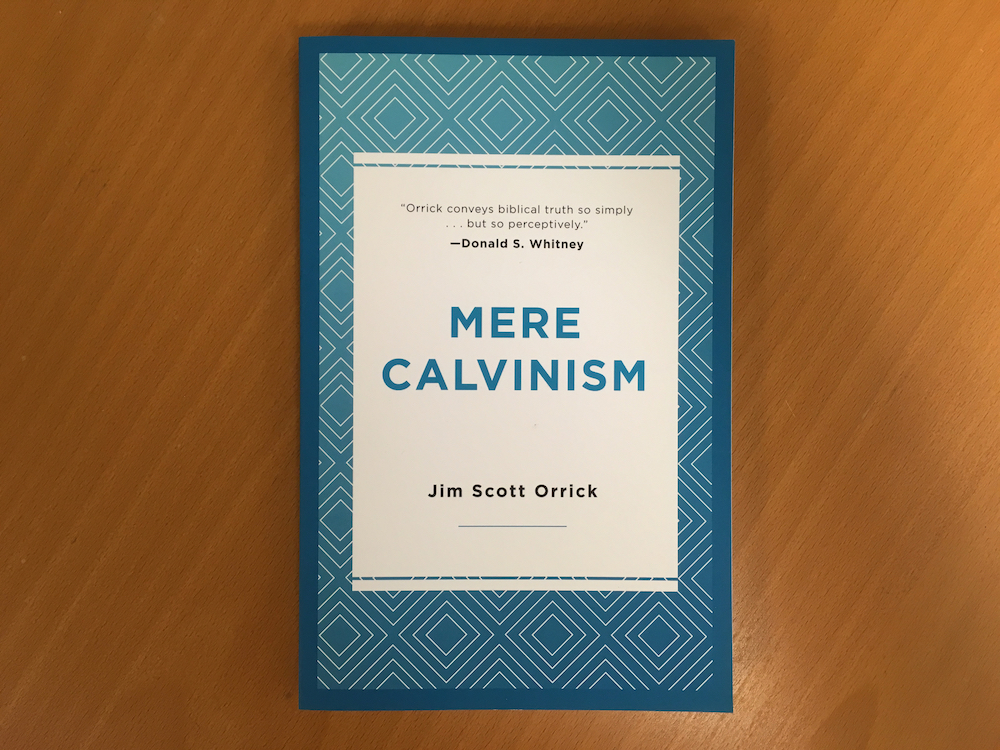Here is Jim Orrick’s Introduction to his new book, Mere Calvinism.
INTRODUCTION
Early in the 1990s, I was reading a book of literary criticism by C. S. Lewis when I came across an entire page on which Lewis discusses the influence of Calvinism in the sixteenth century. The sentence that caught my attention was this one: “Unless we can imagine the freshness, the audacity, and (soon) the fashionableness of Calvinism, we shall get our whole picture wrong.” I was amazed that there had been a time when Calvinism was fashionable. I had been a Calvinist for virtually all my life, and I assure you that in the late twentieth century it was not fashionable to be a Calvinist. I knew a few older men who were Calvinists, but virtually no young people. Yet Lewis observed that in the writings of the sixteenth century, “Youth is the taunt commonly brought against the puritan leaders by their opponents: youth and cocksureness.”1 When I first read Lewis’s words, I could barely have imagined that within twenty years I would see the time return when, in some circles, Calvinism would again become fashionable. Like before, many of the new Calvinists are young and cocksure. In many cases, however, their brash confidence is unfounded. Just because someone calls himself a Calvinist does not mean that he knows what Calvinism is.
For years I have preached in churches and taught in schools where many in my congregations and classrooms would have asserted that they were Calvinists. Or they might have said, “We are Reformed” or “We believe in the doctrines of grace.” In many of those same congregations and classrooms, I have preached and taught through the material found in this book, and here is what I have observed: most of those persons who call themselves Calvinists do not really know much about Calvinism, and most of them are conscious of their ignorance. I tell my students that they are not going to be tested over the lectures, but they furiously take notes as if they have never before heard what I am saying. They ask intelligent but basic questions that reveal that some of them are working through these ideas and these Scriptures for the first time. Perhaps most revealing are the comments that I often get afterward: “I have been in this church/college for years, and I have never understood these doctrines until now.” At the conclusion of the semester, I will sometimes poll my students, asking them, “If there has been a book, a lecture, or a discussion that has been especially helpful to you, I would like to hear about it.” Far and away the most common response has been “The lectures on the Five Points of Calvinism.”
When we first see the fundamental ideas of Calvinistic theology and recognize that the Bible is founded on the principle that God does as he pleases, we may rush to declare ourselves to be Calvinists, but we desperately hope that no one questions us carefully about what we believe. Worse, we get into arguments about the sovereignty of God, and we reveal our insecurity and immaturity by becoming angry with the people who disagree with us. I fear that we pastors and teachers are making a serious mistake when we assume that our people and students understand Calvinism just because they call themselves Calvinists.
I have attempted to write a simple, easy-to-understand explanation of the Five Points of Calvinism. I have tried to write a book that you might hand to a young Calvinist, or to someone who just wants to understand what Calvinism is, with the confidence that he or she will be able to understand the book. I have deliberately used a lot of illustrations that have helped me to understand these truths myself and explain them to others.
Several years ago, I announced to my classes that the following week I planned to lecture on the Five Points of Calvinism. Before the lectures, a student met me on campus, and with a concerned expression she asked, “Dr. Orrick, when you lecture on Calvinism, you are going to use the Bible, aren’t you?” She went on to explain her question, observing that most of the discussions she had heard about Calvinism were more philosophical than biblical. I assured her that I would indeed use the Bible as the basis for everything I said, and I assure you of the same. You might read this book and think that I am misinterpreting the Bible, but if you are fair-minded, you will have to admit that I am trying to recognize and interpret what the Bible says. At least, that has been my goal.
Dr. Tom Nettles read the manuscript of this book and made several excellent suggestions, which I incorporated. Thank you. Years ago you told me to stop calling you “Dr. Nettles” and to call you by your first name, so I have. But I want you to know that, on the inside, I still call you “Dr. Nettles.”
My wife Carol read the manuscript, and she too made valuable suggestions; and I incorporated nearly all of them. Thank you.
1. C. S. Lewis, English Literature in the Sixteenth Century Excluding Drama, The Oxford History of English Literature 3 (Oxford: Oxford University Press, 1954), 43.
Currently this book is only $10.99 from wtsbooks.com.


Comments